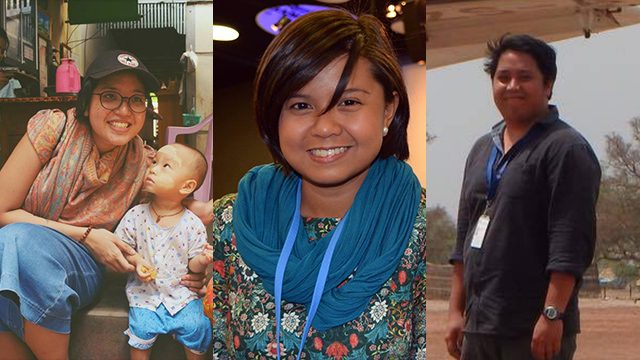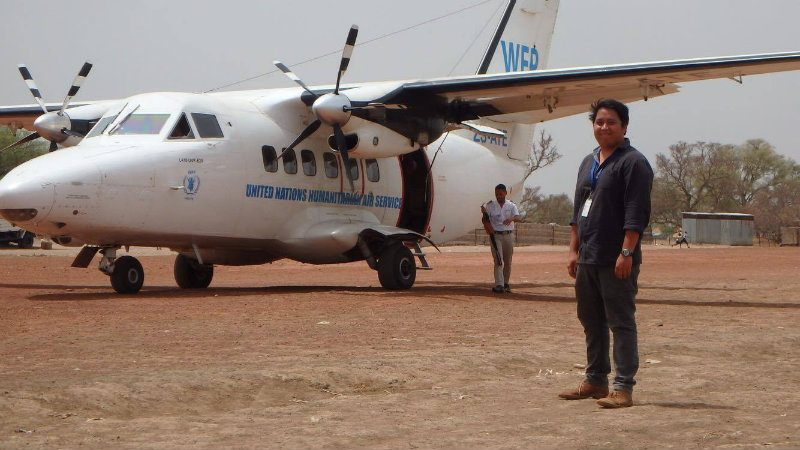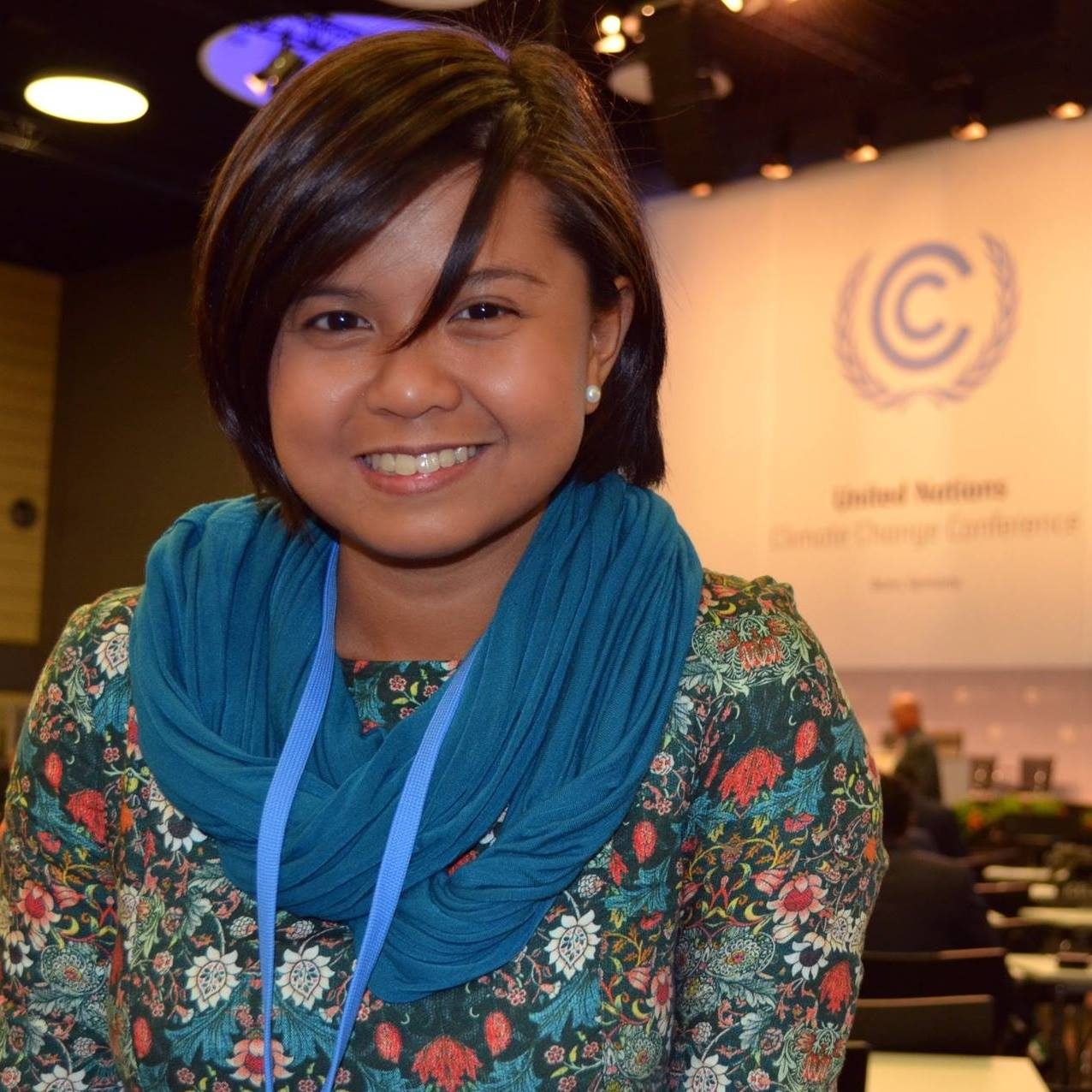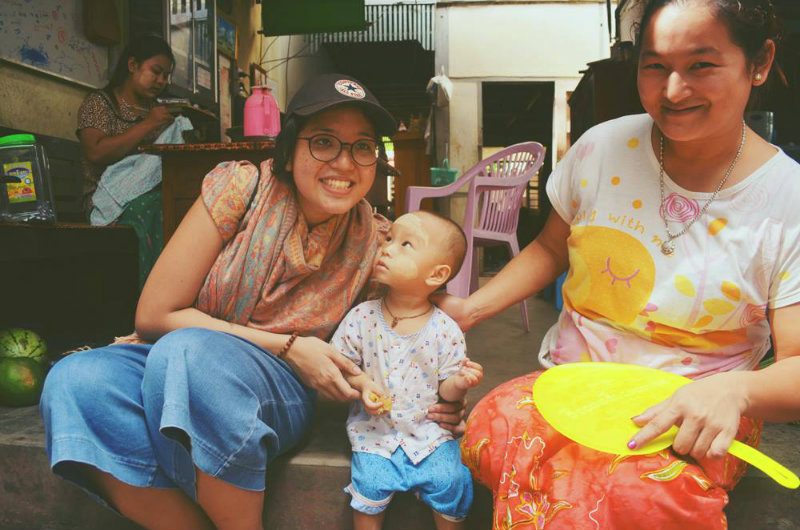SUMMARY
This is AI generated summarization, which may have errors. For context, always refer to the full article.

MANILA, Philippines – What makes non-governmental organizations and humanitarian work attractive to the youth?
While young humanitarian workers have different answers to this question – ranging from personal to philosophical – they are all united by their common goal: Change.
If there is one thing millennials engaged in NGOs share in common, it is their burning desire to create ripples of change in society.
To better understand the challenges and rewards of being a millennial working in NGOs, Rappler interviewed 3 young Filipinos working in the sector.
Giano Libot, a humanitarian worker who served in the Sudan-South Sudan area focusing on the field of humanitarian accountability, said what he loves most about being part of an international NGO is that he can focus attention on what is “inaqautely addressed” during a crisis situation.

“State entities are often tasked to cover all, which leaves some needs inadequately addressed. NGOs come in and provide the much needed niche,” Libot added.
Challenges
Especially at times of natural calamities and disasters, humanitarian workers and NGOs serve to complement government efforts in crisis response and rehabilitation. (READ: What is it like to be a humanitarian worker?)
Given this herculean task, doing NGO work is not awalk in the park. It comes with its own set of challenges and risks.
For example, in conflict zones around the world, it is becoming increasingly risky to be a humanitarian aid worker. In 2014 alone, at least two humanitarian workers have been killed and countless more put in harm’s way despite the protection accorded to them by international humanitarian law.
Peter Maurer, International Committee of the Red Cross (ICRC) president, said in a 2014 interview with Rappler that there is an increased deliberate targeting of humanitarian workers using methods of terror towards the civilian population, towards humanitarian [workers].
Libot’s experience in the recent South Sudan attack is also proof of the increasingly risky life of humanitarian workers and NGOs workers.
During the 4-hour rampage by South Sudanese troops at the Hotel Terrain in July, Giano Libot, along with other international humanitarian workers, witnessed a colleague killed by soldiers.
Despite the harrowing experience, Libot said that “the fire is still there.” After giving himself time to recover, he plans to return to humanitarian work.
“I don’t have misplaced expectations about what we do. We try to help and I know that no matter how hard we work, we can’t change everything. The thing that keeps me going, though, is just this simple conviction that at least with whatever effort we can give, we make what is a horrible situation at least become manageable,” Libot added.

Rewards
Another pressing challenge among millennials doing humanitarian work, according to climate tracker Ayeen Karunungan, is translating online noise to real-life action.
Karunungan works for Dakila as Climate Director, and Climate Tracker as Outreach Manager.
“It’s challenging to make people get out of their houses and immerse in communities or go to events or go to protests when clicking like and share is very comfortable,” Karunungan said.
Yet for millennials doing humanitarian work, these challenges pale in comparison to the priceless rewards of their job.
“You get to see the results of your work that inspires you to do more. For example, if you have an event that talks about human rights or climate justice, and people become interested and ask you about it, then that makes the event a success and makes you want to work even more,” Karunungan said.
Karunungan’s experience during the 21st United Nations climate change conference held in Paris (COP21) in December 2015 is an example of this.
“COP21 was a very historic moment….To be in the same room as experts, scientists, and policy makers and to feel the victory of working together – that was priceless. Everyone was crying or hugging each other. We all knew we were serious in making the planet better. And it felt good to be part of history,” Karunungan recounted.

Fritzie Rodriguez, a fundraising development writer for Save The Children, echoed Karunungan.
“When you are young, you are usually very idealistic but in the ‘NGO world’ or the humanitarian world, you will see that even if we intend to do good things, there will be barriers. So the challenge is to not lose your flame and to keep pushing for what your organization is fighting for,” Rodriguez said.
A former journalist, Rodriguez said that writing about child malnutrition and hunger exposed her to the plight of Filipino children. This eventually led her to the NGO world.
In her stint as a journalist, Rodriguez learned more about the plight of malnourished children worldwide. According to studies, about 3 million children worldwide don’t reach their 5th birthday due to undernutrition. Undernutrition occurs primarily because of hunger.
“I then became a child rights advocate. This is how I decided to be part of an NGO working on children’s rights. I wanted to focus on children,” Rodriguez shared.
Reality bites
For Libot, Rodriguez, and Karunungan, being part of an NGO is a constant tug-of-war between the inherent challenges that come with the profession and its corresponding fulfilling rewards.
While Rodriguez acknowledged that NGO work is a thankless job, she only has good words for millennials planning to pursue the same path.
“Don’t be afraid to do it, if that’s what you really want. It can feel at times, just like other paths, that it’s a thankless job. You do not get a byline, you do not get public recognition, it’s not glamorous, it’s tiring, you often have to go to sites that you may find uncomfortable if you’re not used to those kinds of areas. But it’s worth it; you’ll find meaning,” Rodriguez said. – Rappler.com

Add a comment
How does this make you feel?

There are no comments yet. Add your comment to start the conversation.